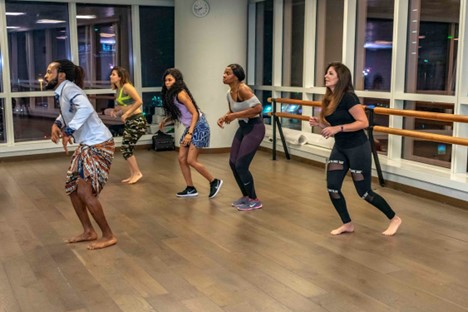Casual Athlete? Sport Psychology Can Help You Reach Your Full Potential
Whether you’re a weekend warrior, a fitness enthusiast, or someone who plays sports casually to stay active, you may not realize that sport psychology can be a powerful tool to help you achieve your personal best. While sport psychology is often associated with elite athletes competing at the highest levels, its principles can benefit anyone who participates in physical activities, regardless of skill level or competition frequency.
In this blog, we’ll explore how sport psychology can help casual athletes like you reach your full potential, improve your performance, and enhance your overall experience in sports and fitness.
Understanding Sport Psychology
Sport psychology is the study of how psychological factors influence athletic performance, and how participation in sports and physical activity affects mental health. While competitive athletes may focus on things like:
- motivation
- focus
- mental resilience
these concepts are just as relevant for casual athletes who want to improve their game and reach their fitness goals.
Sport psychology can assist in various aspects, including mental preparation, goal setting, self-confidence, concentration, and managing stress or anxiety.
- Boost Your Mental Resilience
Casual athletes often face challenges such as a lack of motivation, self-doubt, or difficulty staying consistent with training. These psychological barriers can sometimes prevent you from reaching your full potential. Sport psychology helps athletes recognize and overcome these challenges by building mental resilience.
- Developing a growth mindset: Cultivating a belief that improvement is possible with effort and practice can help you push past setbacks and continue working towards your goals.
- Positive self-talk: Encouraging yourself with affirmations can help you push through tough moments and avoid negative thoughts that can hinder your performance.
- Embracing failure: Learning to view mistakes or less-than-ideal performances as opportunities to learn and grow can reduce the fear of failure, making you more open to challenges.
- Improve Focus and Concentration
Whether you’re playing a pickup game of basketball or going for a run, maintaining focus and concentration is essential for performance. Sport psychology offers techniques to help you stay in the zone and perform at your best.
- Mindfulness: Practicing mindfulness can help you stay present in the moment and tune out distractions. This is particularly helpful for casual athletes who may be juggling multiple activities or responsibilities, as it helps you stay engaged with your sport.
- Visualization: Visualizing success can help create a positive mental image of how you want to perform, allowing you to mentally rehearse the actions necessary to succeed.
- Routine development: Establishing pre-game or pre-workout rituals can help signal to your brain that it’s time to focus and get in the right mindset.
- Set Realistic and Achievable Goals
Setting goals is a key part of sports psychology, and it doesn’t matter whether you’re training for a marathon, playing soccer for fun, or working on your flexibility. Having clear, realistic goals can help you stay motivated and track your progress.
- SMART Goals: Goals that are Specific, Measurable, Achievable, Relevant, and Time-bound can keep you focused and help you break down larger aspirations into manageable steps.
- Long-term and short-term goals: Balancing both types of goals helps provide motivation for immediate progress, while also allowing you to stay motivated by keeping your larger objectives in mind.
- Manage Stress and Anxiety
Performance anxiety is common even for casual athletes. Whether it’s nervousness before a game, anxiety during a race, or feeling pressure to keep up with friends, these emotions can negatively impact your performance. Sport psychology offers techniques to manage stress and anxiety, helping you stay calm under pressure.
- Breathing techniques: Learning to regulate your breathing can help calm your nervous system, reduce anxiety, and improve focus.
- Progressive muscle relaxation: This method involves tensing and relaxing muscle groups to release tension and calm the body.
- Cognitive restructuring: Changing negative thought patterns to more positive or neutral ones can reduce anxiety and improve performance.
- Enhance Your Enjoyment
At its core, sport psychology is about improving not just performance but also enjoyment. Whether you’re playing for fun or competing, finding joy in your sport is essential for long-term success and well-being.
- Intrinsic motivation: Focusing on the joy and personal satisfaction that comes from participating in sports can help you stay committed without feeling overwhelmed by external pressure or competition.
- Social support: Surrounding yourself with supportive teammates or friends can make your sport more enjoyable, and the positive social connections will boost your motivation.
- Balance: Learning to balance your athletic pursuits with other aspects of your life helps maintain a healthy relationship with sports and ensures you don’t burn out.
- Build Confidence
Confidence is a crucial aspect of performing well in sports, even for casual athletes. Building self-confidence allows you to push yourself further, try new things, and overcome challenges.
- Past successes: Reflecting on your past achievements, no matter how small, can help you build confidence in your abilities.
- Positive reinforcement: Acknowledging and celebrating your successes, even minor ones, can reinforce positive behaviors and improve your self-esteem.
- Role models and mentors: Learning from others who inspire you can help you gain insight into how to improve both mentally and physically.
To learn more, check out this summary from Iowa Health Care.
Incorporating psychological strategies into your athletic routine can make a huge difference. So, why not give it a try? Start setting goals, managing stress, and focusing on improving your mental game today, and you might just be surprised at how much further you can go.
Enhance your cognitive abilities and optimize mental focus by incorporating the remarkable Brain Vitale supplement from the esteemed Asher Longevity Institute. This exceptional supplement is specifically designed to boost your brain’s performance, enhancing mental clarity, sharpening cognitive planning skills, and improving organizational acuity. Additionally, it aids in retaining spatial relationships, further augmenting your cognitive capabilities.




